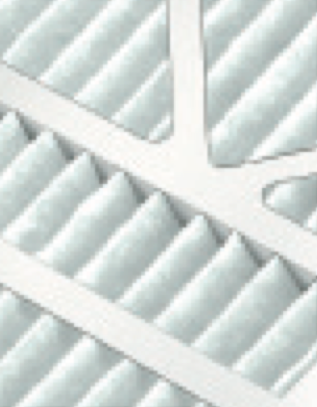Fiberglass or Pleated Air Filters?
Air filter quality is important because it makes a difference to the air that the people in your home breathe. There are a few things to consider when choosing the best air filter for your space, including cost, effectiveness, filter change frequency, how well it's made, etc.
The key factor of good air filters is quality at an affordable cost. You can identify high-quality air filters by their material and MERV rating. Although it might be tempting, avoid picking an air filter based only on price and instead consider the best type for your home - especially if you or anyone in your household suffers from allergies.
There is a range of air filters to choose from, but shoppers typically end up deciding between pleated and fiberglass when looking for the right furnace filter.
If you're looking for long-term savings and high-quality filters that need to be replaced less - pleated air filters are ideal for you. They're efficient, sustainable, and cost-effective, and they're the best option for people with allergies or respiratory problems.
If you want a traditional, no-frills filter that provides standard protection at a low cost, fiberglass air filters are the best choice for you.
Testing both air filters over a 6-month period will help you determine which one makes the biggest difference in your space. Continue reading to learn about the pros and cons of fiberglass and pleated air filters, and to find out if pleated filters are right for you.

Fiberglass Air Filters
Pros
✓ Fiberglass air filters allow greater airflow when changed regularly. They catch larger contaminants like lint and dust.
✓ Because fiberglass filters don't impede airflow they put less stress on weaker HVAC units.
✓ Inexpensive.
Cons
• The surface area is small and can't capture as many contaminants as pleated filters, making them a poor choice for allergy sufferers and individuals with respiratory issues.
If you don't change your fiberglass air filters regularly (every 30 days or less) - they will become clogged and can impede airflow.
Fiberglass filters aren't biodegradable or recyclable.
Pleated Air Filters
Pros
✓ Pleated air filters can last up to 3 months based on your home/ business environment and the time of year. Pleated filters offer more value for their cost when compared to fiberglass.
✓ Pleated filters have more surface area so that they can capture larger amounts of smaller contaminants. Because of their design, pleated air filters can capture dirt, pollen, dust, pet dander, bacteria, and more, making them an excellent choice for allergy sufferers or individuals with respiratory issues.
✓ Pleated air filters may be biodegradable or recyclable in your community.
Cons
• Pleated air filters cost more than fiberglass but provide a longer filter life and higher efficiency.
Are Pleated Air Filters Right for You?
Figuring out if pleated air filters are right for you is easy! If you're looking for a sustainable filter option that requires fewer filter replacements and offers long-term savings, then you should consider switching to pleated air filters.
Pleated air filters are known for their featured folds, or pleats, that provide more surface area to capture higher volumes of contaminants. Because of their uniform spacing, pleated air filters maximize holding capacity and filter life, and they won't collapse or bunch. Purolator pleated air filters use high-efficiency media without negatively affecting the resistance to airflow.
Purolator pleated air filters are the result of our ongoing commitment to improving the science of air filtration and perfecting the quality and performance of our filters. Purolator pleated filters currently outperform competitors in initial efficiency and average efficiency - proving optimal filter life. The design of our pleated air filters allows air to flow through them easily, which is why they are highly effective at capturing airborne contaminants.
Before choosing an air filter, it's important to check the MERV rating recommended by your HVAC systems manufacturer. For additional assistance, get in touch with our specialists.
Air filters capture contaminants like dust, dander, and pollen to keep clean air circulating through HVAC systems. There are many different types of air filters, each being uniquely designed to provide specific features and MERV ratings.
Although filters with higher MERV ratings are more effective at trapping small air contaminants like bacteria, they're not made to be compatible with every HVAC system or suitable for every application. Pairing high MERV-rated filters with an incompatible HVAC system can result in airflow blockage, high energy costs, declining performance, and equipment malfunction. Using the proper air filter guarantees maximum performance and service life.
Pleated air filters offer more value for their cost and can last up to 3 months based on the environment and season. They can be biodegradable or recyclable and make an excellent choice for allergy sufferers and individuals with respiratory issues.
Nobody pays more attention to media specifications than Purolator. Rigid requirements for resistance, efficiency, MERV values, and dust holding capacity are verified by QC checks on incoming raw materials, production line sampling, and field audits of finished goods. Order your pleated air filters online, or request a free quote for custom filters today!
You may also like:
• 4 Ways to Make Your Air Filters Last
• Do HVAC Filters Help with Dust?
• Benefits of Purolator Air Filters
